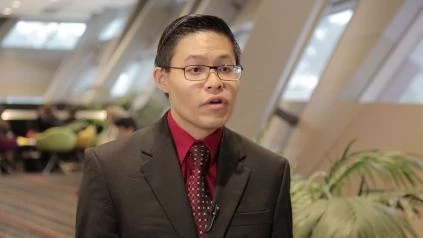David Hui, MD, MSc of MD Anderson Cancer Center, Houston, TX discusses end-of-life decisions, which should be based on patients prognosis. As patients get weaker it is important to re-evaluate decisions. A good communication with the patient and their family is important in order to come up with a personalised decision. Guidelines recommend to minimise aggressive interventions at the end of life, with subcutaneous hydration being considered in some patients. In the last months of life many patients start to experience a decrease in appetite, some degree of weight loss, and a difficulty eating or swallowing food. Existing studies show that supplementation with extra fluids or nutrition does not help patients live longer, but instead may create addition burden. Recorded at the Multinational Association of Supportive Care in Cancer (MASCC) and International Society of Ocular Oncology (ISOO) 2016 Annual Meeting on Supportive Care in Cancer held in Adelaide, Australia.
[the_ad id="32629"]

